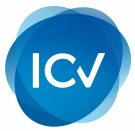Die finanziellen Turbulenzen der letzten Jahre haben die Rolle des Controllers in den Mittelpunkt gerückt. Die Krise als das „neue Normal“ erfordert ein agiles, vorausschauendes Controlling, das weit über traditionelle Buchhaltung hinausgeht. Controlling hat sich zu einer strategischen Säule entwickelt, die nicht nur Finanzdaten aufbereitet, sondern sie auch als Grundlage für geschäftsentscheidende Einsichten nutzt.
Controller stehen daher vor der Herausforderung, sich ständig optimieren zu müssen. Die digitale Transformation und der Bedarf an Echtzeit-Daten verlangen nach neuen Tools und Methoden.
Eine Studie der Hackett Group zeigt, dass Unternehmen etwa 5 % mehr Budget für Finanztechnologien veranschlagen müssen, um die Produktivität zu sichern. Gleichzeitig wird ein Anstieg der Arbeitslast um 8 % erwartet, während die personellen Ressourcen um etwa 1 % sinken und das Budget um 2 % gekürzt wird. Das macht deutlich, wie essentiell effizientes Controlling ist.
Ein gutes Controlling, das auch 2024 Schritt halten kann, muss verstärkt den Cashflow im Auge behalten. Dieser erweist sich als verlässlicher Indikator für die Unternehmenssteuerung und ist zentral für die Erarbeitung relevanter KPIs wie der Runway – ein Maß dafür, wie lange ein Unternehmen mit den vorhandenen Liquiditätsreserven operieren kann.
Aktualität und Qualität der Daten spielen eine entscheidende Rolle. Controller müssen Daten nicht nur sammeln und analysieren, sondern sie auch in Beziehung setzen können. Spezialisierte Tools werden zur Norm, um finanzielle Daten zu modellieren und zu interpretieren. Zugleich wandelt sich das Profil des Controllers. Neben einer hohen Tool-Affinität und einem tiefen Verständnis für betriebswirtschaftliche Prozesse sind Soft-Skills wie bspw. Kommunikationsstärke gefragt. Controller müssen als strategische Business-Partner agieren und gleichzeitig mit dem ständigen Wandel Schritt halten.
Der Wandel in der Controller-Rolle spiegelt sich auch in der Anpassung der Software-Tools wider. Lösungen wie Agicap ermöglichen es Controllern, manuelle Prozesse zu automatisieren und sich auf entscheidende Controlling-Aufgaben zu konzentrieren. Sie ziehen Finanzdaten aus vernetzten Systemen, kategorisieren diese intelligent und erstellen Liquiditätsprognosen.
Für Unternehmen, die sich im Jahr 2024 und darüber hinaus an der Spitze behaupten wollen, ist ein hochqualifiziertes, modern ausgestattetes Controlling unverzichtbar. Um tiefer in diese Thematik einzutauchen und zu erfahren, was einen guten Controller wirklich ausmacht, empfehlen wir Ihnen, das Ebook „Controlling optimieren für Krisenzeiten: Key Tasks, Tools und Trends“ von Agicap herunterzuladen. Dort erhalten Sie noch weitere Tipps und Insights, wie Sie Ihr Controlling für 2024 krisenfest machen.
Erweitern Sie Ihr Wissen und rüsten Sie Ihr Controlling für die Zukunft.
Laden Sie sich hier das kostenlose Ebook runter.
The financial turbulence of recent years has brought the role of the controller into focus. The crisis as the “new normal” requires agile, forward-looking controlling that goes far beyond traditional accounting. Controlling has developed into a strategic pillar that not only prepares financial data, but also uses it as a basis for business-critical insights.
Controllers are therefore faced with the challenge of having to constantly optimize themselves. Digital transformation and the need for real-time data require new tools and methods.
A study by the Hackett Group shows that companies need to allocate around 5% more budget for financial technologies to ensure productivity. At the same time, the workload is expected to increase by 8%, while human resources will decrease by approximately 1% and the budget will be reduced by 2%. This makes it clear how essential efficient controlling is.
Good controlling that can keep up in 2024 must pay closer attention to cash flow. This proves to be a reliable indicator for corporate management and is central to the development of relevant KPIs such as runway – a measure of how long a company can operate with the existing liquidity reserves.
The timeliness and quality of the data play a crucial role. Controllers must not only collect and analyze data, but also be able to relate it to each other. Specialized tools are becoming the norm to model and interpret financial data. At the same time, the profile of the controller is changing. In addition to a high affinity for tools and a deep understanding of business processes, soft skills such as strong communication skills are required. Controllers must act as strategic business partners while keeping pace with constant change.
The change in the controller role is also reflected in the adaptation of the software tools. Solutions like Agicap enable controllers to automate manual processes and focus on crucial controlling tasks. You pull financial data from networked systems, categorize it intelligently and create liquidity forecasts.
For companies that want to remain at the top in 2024 and beyond, highly qualified, modern controlling is essential. T dive deeper into this topic and find out what really makes a good controller, we recommend that you download the ebook “Optimizing Controlling for Times of Crisis: Key Tasks, Tools and Trends” from Agicap. There you will receive further tips and insights on how to make your controlling crisis-proof for 2024.
Expand your knowledge and prepare your controlling for the future.
Download the free ebook here (publication in German).



